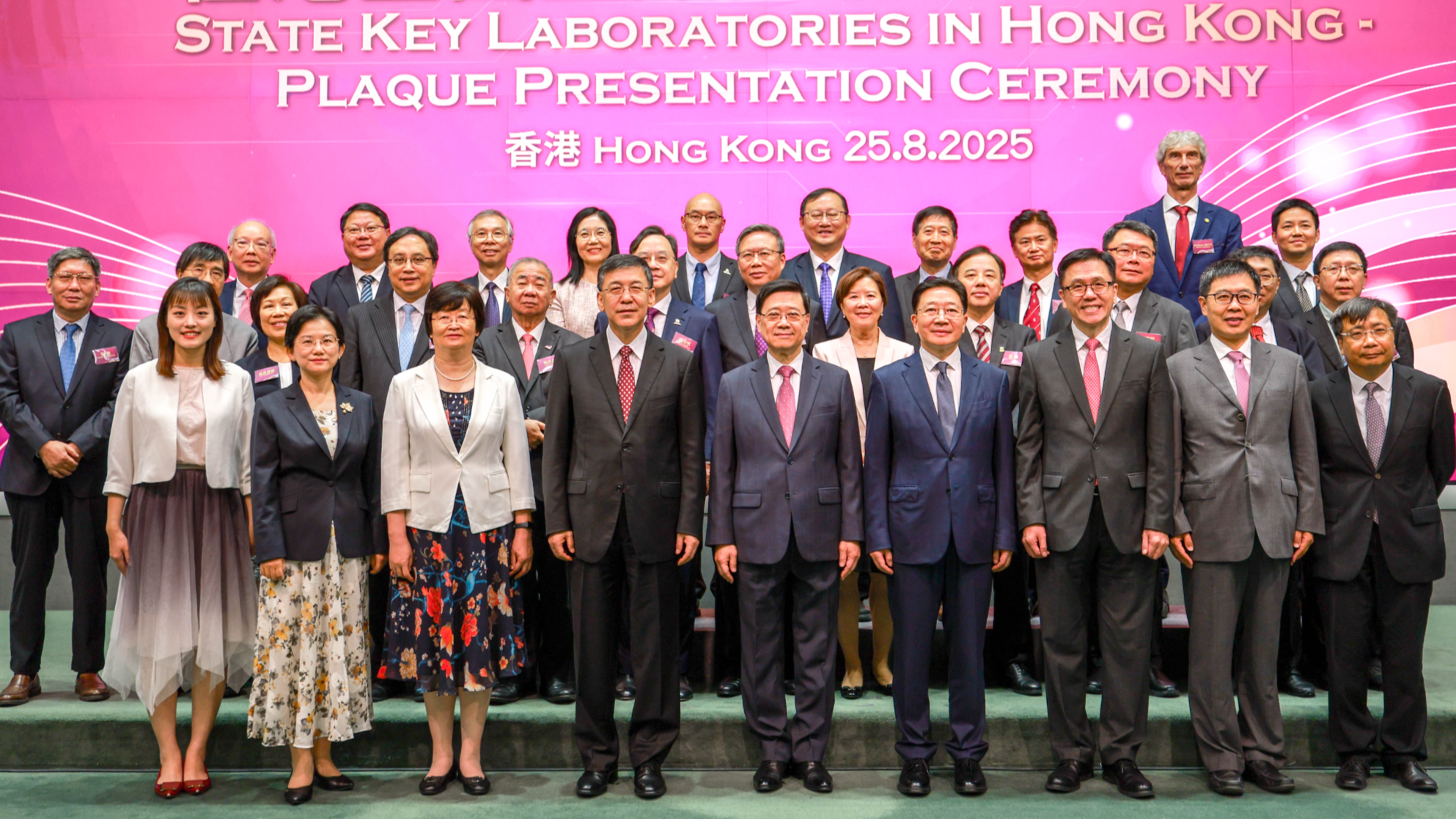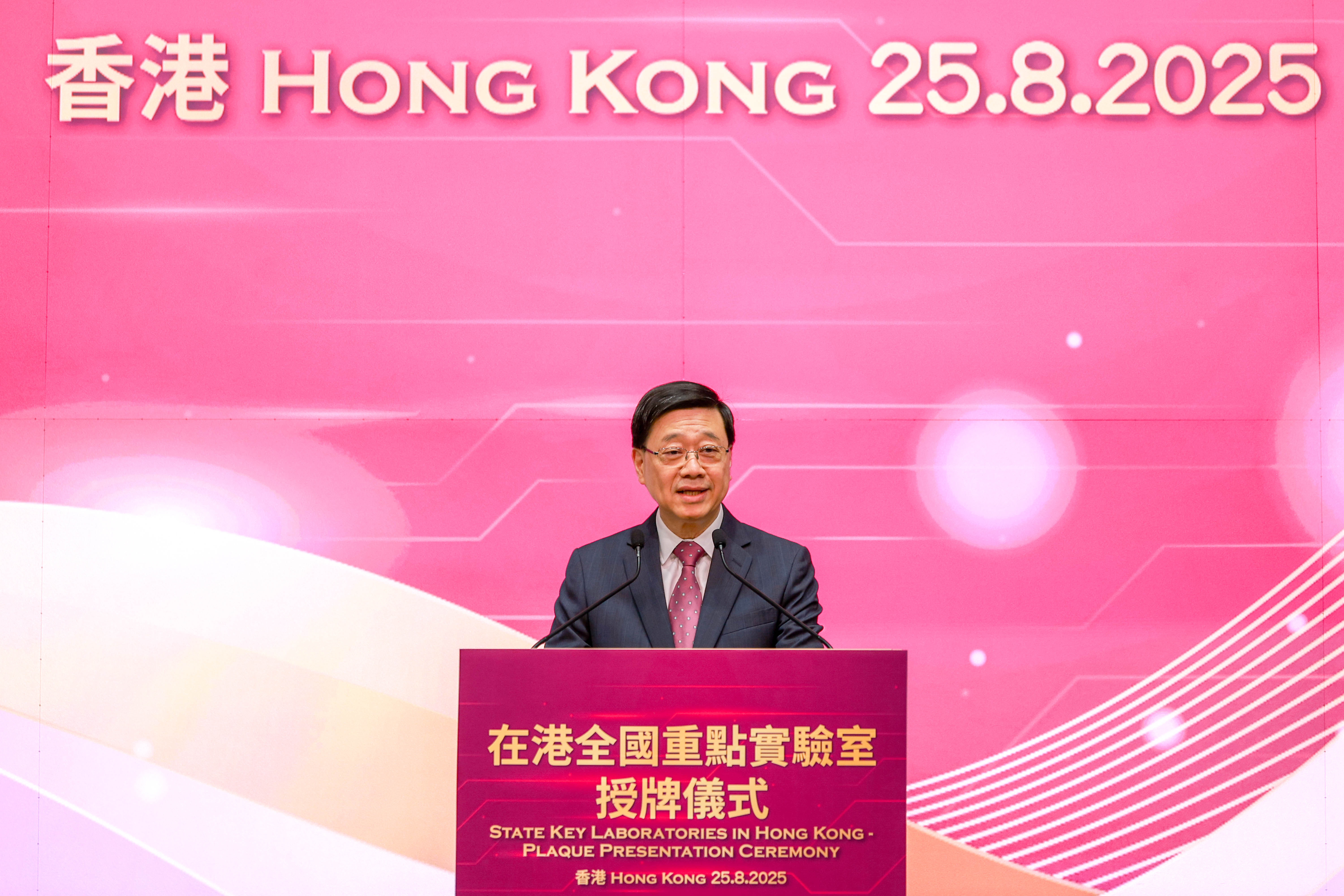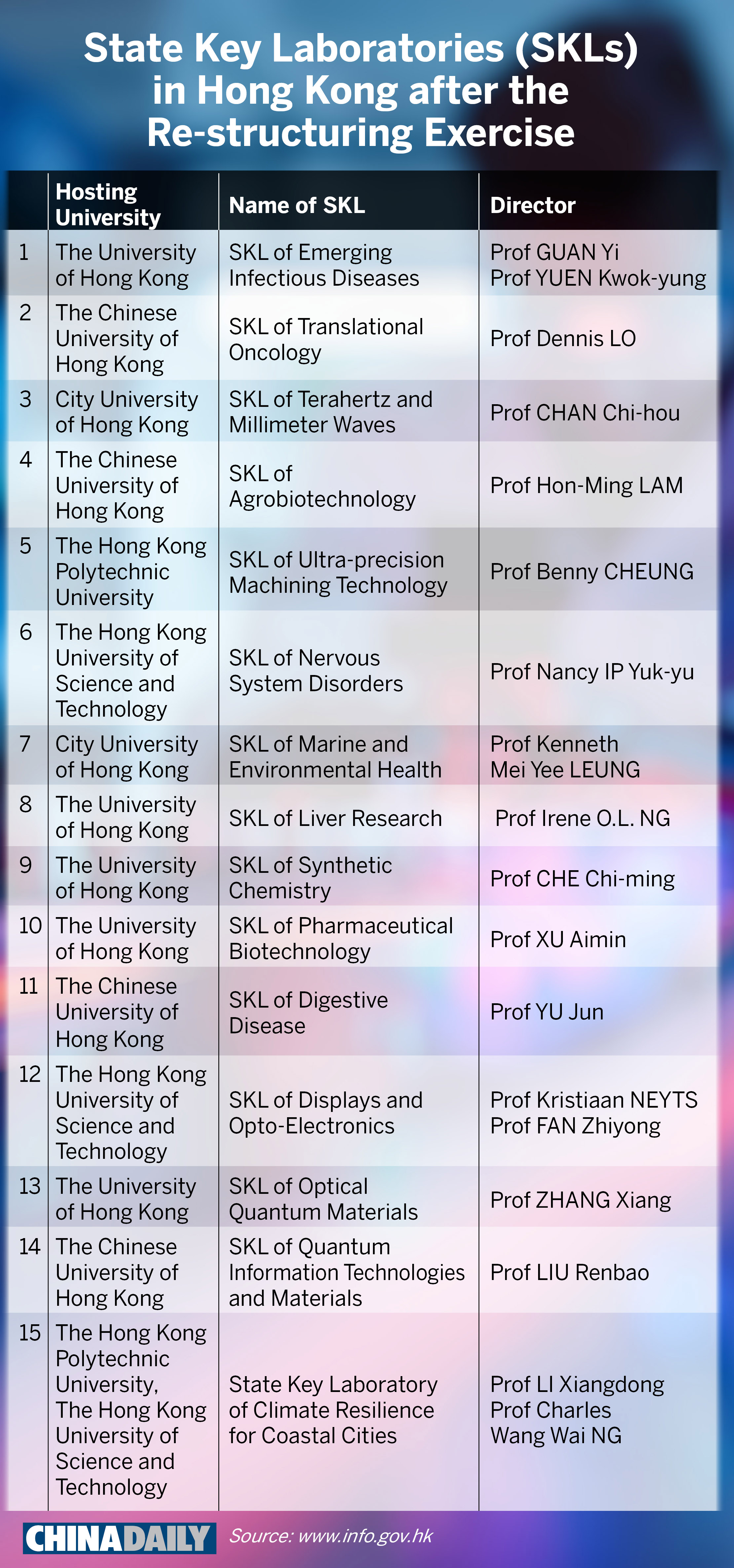
Hong Kong held a plaque presentation ceremony for 15 State Key Laboratories (SKL) in the city on Monday, which are expected to contribute to the nation’s goal of building a scientifically and technologically strong country through pioneering research.
The nation’s State Key Laboratories Scheme is managed by the Ministry of Science and Technology (MOST). The 15 Hong Kong laboratories which have been incorporated into scheme cover diverse fields like medicine, quantum studies, biology, environmental science, and climate, and officially began operations on July 1. Each lab is set to receive annual funding of up to HK$20 million ($2.56 million) from the SAR government to boost research capabilities.
ALSO READ: HK maintains strengths, advantages amid heightened geopolitical rivalries
Originally, State Key Labs could only be established on the Chinese mainland. Upon approval from MOST, labs in Hong Kong could only be Partner SKLs by pairing up with SKLs in the mainland. Since 2018, Hong Kong has been allowed to establish national-level labs independently. In January 2025, MOST approved restructuring these national-level labs into SKLs and they began operation on July 1.
These labs are affiliated with the University of Hong Kong, the Chinese University of Hong Kong, City University of Hong Kong, Hong Kong Polytechnic University, and Hong Kong University of Science and Technology.
Attending the ceremony, Minister of Science and Technology Yin Hejun described the operation of the 15 SKL in Hong Kong as a milestone event in the city's integration into the national innovation system. He said that this recognition signifies a high regard for Hong Kong's research capabilities and development potential, while also reflecting the nation's expectations for the region. He said he hoped that these labs would stay focused on their mission and strive for original breakthroughs to tackle technological hurdles in the country's progress.

He also stressed the need for Hong Kong to uphold an open, inclusive environment fostering academic excellence, providing “a stage” for international talents.
Emphasizing the significance of enhancing collaboration with scientific communities and leading enterprises in the mainland, he called for a joint effort to accelerate the transformation and application of technological achievements to serve the development of the Guangdong-Hong Kong-Macao Greater Bay Area and the nation as a whole.

Director of the Liaison Office of the Central People's Government in HKSAR Zhou Ji emphasized the central government's unwavering support for Hong Kong in enhancing technological collaboration with the mainland and evolving into a global center for innovative technology. In pursuit of this goal, the central government has implemented various policies benefiting Hong Kong, including measures to streamline fund transfers and promote the sharing of facilities and equipment. He pledged that his office will continue to facilitate technological cooperation between Hong Kong and the mainland in the future.
READ MORE: HKSAR CE John Lee urges global unity to tackle health challenges
Chief Executive John Lee Ka-chiu said he envisions the laboratories as vital platforms to propel Hong Kong towards becoming a global center for top-tier talent. He added that he would like to see closer ties among Hong Kong's universities, these SKL and both domestic and international research institutions to foster deeper collaboration across industry, academia, and research. To advance this vision, he also pledged to expedite the development of the Hong Kong Park of Hetao Shenzhen-Hong Kong Science and Technology Innovation Co-operation Zone, a twin science parks bordering Hong Kong and the tech powerhouse Shenzhen.
Contact the writer at amberwu@chinadaily.com


